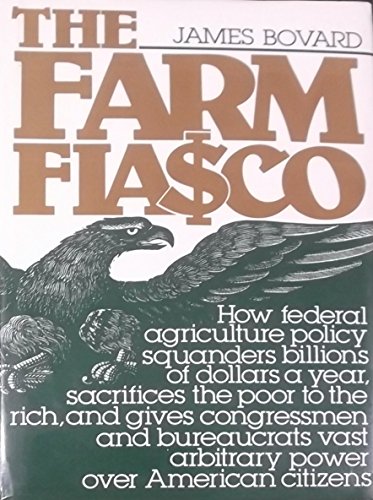Counting on foreign aid to reduce corruption is like expecting whiskey to cure alcoholism. After closed House of Representatives impeachment hearings heard testimony on President Trump’s role in delaying U.S. aid to Ukraine, Senate Majority Leader Chuck Schumer declared: “Numbers don’t lie. It’s even more clear now that President Trump is not the anti-corruption crusader he claims to be.”
Most of the press coverage has tacitly assumed that American assistance is vital to fighting corruption in Ukraine. But that ignores foreign aid’s toxic record and Ukraine’s post-Soviet history.
A 2002 American Economic Review analysis concluded that “increases in [foreign] aid are associated with contemporaneous increases in corruption,” and that “corruption is positively correlated with aid received from the United States.”
That was the year President George W. Bush launched a new foreign aid program, the Millennium Challenge Account (MCA). Bush declared, “I think it makes no sense to give aid, money, to countries that are corrupt.” But the Bush administration continued delivering billions of dollars in handouts to many of the world’s most corrupt regimes. By 2004, the State Department had codified what amounted to backtracking: “The MCA is an incentive-based supplement to other U.S. aid programs.” The Bush team found excuses to give MCA aid to some of the world’s most corrupt governments as well, including Georgia.
 The Farm Fiasco
Best Price: $5.95
Buy New $37.95
(as of 09:20 UTC - Details)
The Farm Fiasco
Best Price: $5.95
Buy New $37.95
(as of 09:20 UTC - Details)
In 2010, President Barack Obama proclaimed at the United Nations that America was “leading a global effort to combat corruption.” Obama’s “aides said the United States in the past has often seemed to just throw money at problems,” the Los Angeles Times reported. But the reform charade was exposed the following year when the Obama administration fiercely resisted congressional efforts to curb wasteful aid. Secretary of State Hillary Clinton warned that restricting handouts to nations that fail anti-corruption tests “has the potential to affect a staggering number of needy aid recipients.”
The Obama administration continued pouring tens of billions of American tax dollars into sinkholes such as Afghanistan, which even its president, Ashraf Ghani, admitted in 2016 was “one of the most corrupt countries on earth.” And the deluge of aid the Afghan government received only worsened the corruption. As John Sopko, the heroic Special Inspector General for Afghan Reconstruction (SIGAR), observed, “We need to understand how US policies and practices unintentionally aided and abetted corruption. We must recognize the danger of dealing with characters or networks of unsavory repute, tolerating contracting abuses, accepting shoddy performance and delivering unsustainable projects.”




